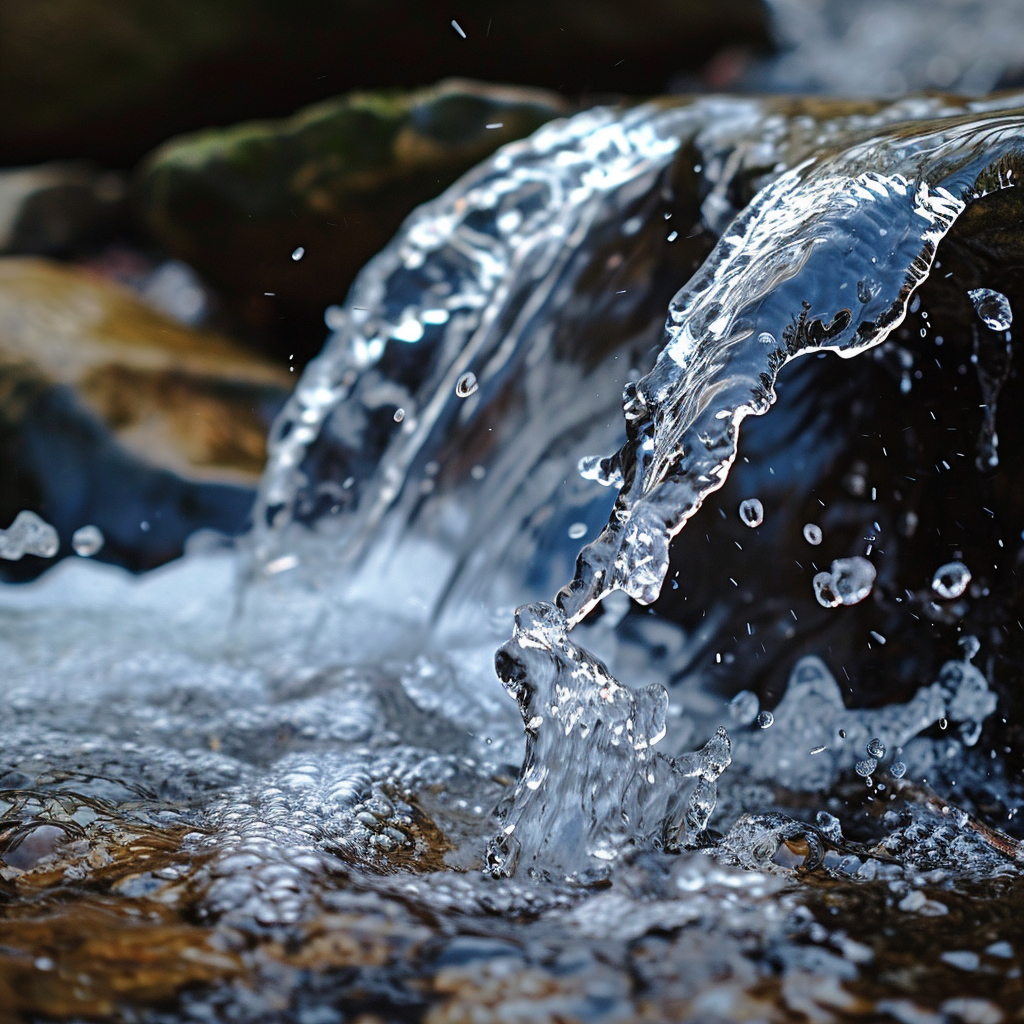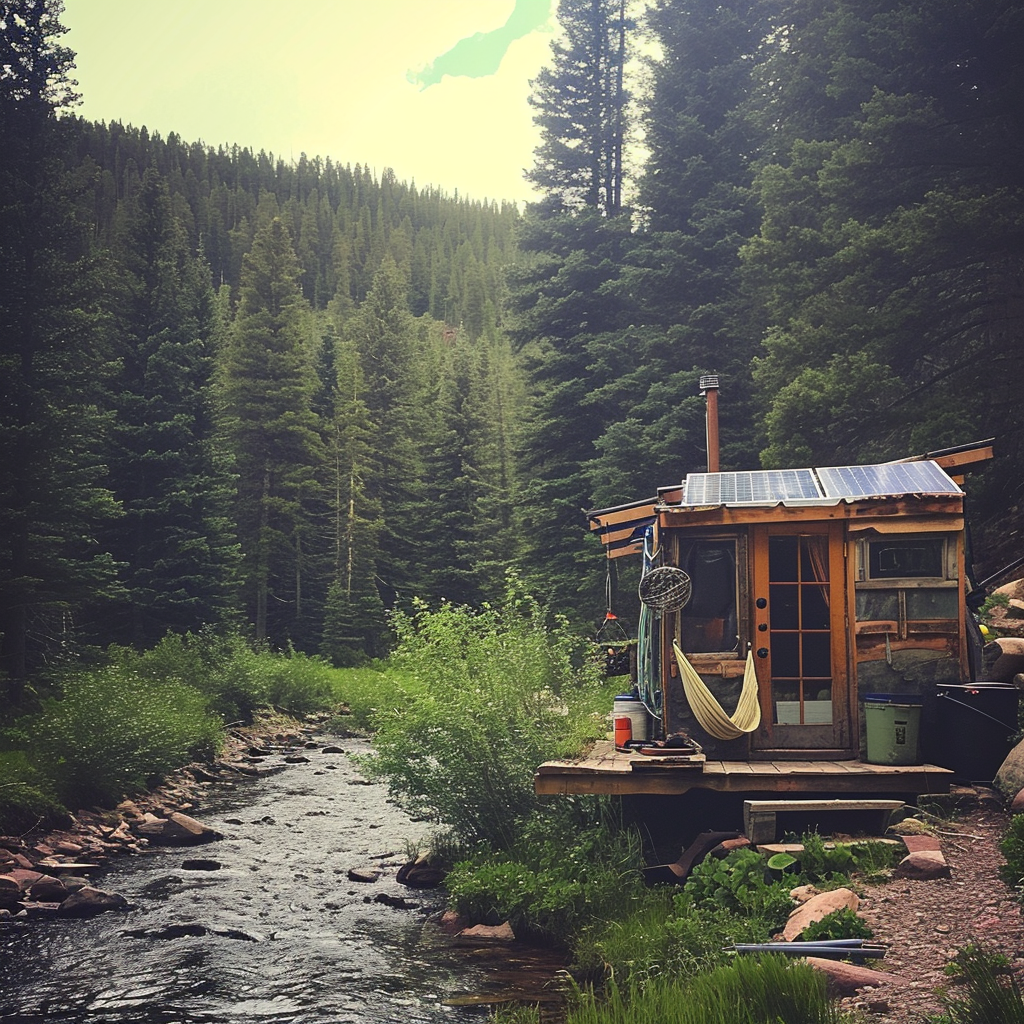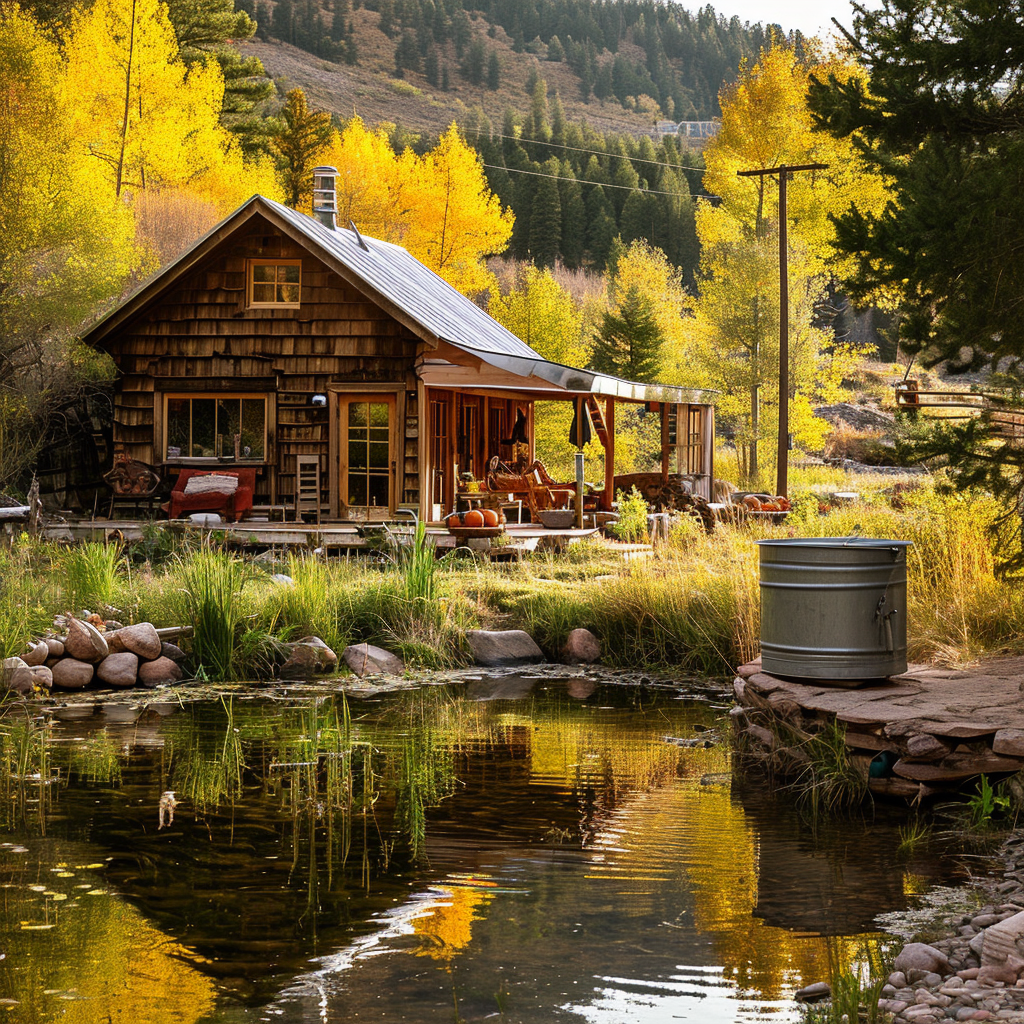So, you’re interested in living off-grid, huh? That’s a big step! One of the most important things to consider when going off-grid is understanding your water needs. I mean, let’s face it, water is essential for our everyday lives. But when you’re not connected to a municipal water supply, you need to figure out how much water is needed for off-grid living to live comfortably.
When it comes to off-grid living, everyone’s water needs will vary depending on factors such as the number of people in your household, your lifestyle, and even the climate you’re in. Some people might be perfectly content with using just a few gallons of water a day, while others might require more for things like gardening or livestock. In general, though, it’s recommended to aim for at least 10-15 gallons of water per person per day.
But hold on a second! Before you start worrying about how you’re going to haul 10 gallons of water a day, let me tell you that there are ways to conserve and even produce your own water off-grid. Rainwater harvesting, for example, is a popular method used by many off-grid enthusiasts. You can collect rainwater from your roof and store it in tanks for later use. Additionally, installing water-efficient fixtures and appliances and practicing mindful water usage can help you stretch your water supply even further.
In this article, we’ll dive deeper into understanding your water needs for off-grid living. We’ll explore different water-saving techniques, discuss the importance of water storage, and even touch on alternative water sources. So, if you’re ready to learn more about how to make your off-grid water journey a success, keep reading!
Understanding Water Needs for Off-Grid Living
Living off the grid can provide a sense of freedom and self-sufficiency. By disconnecting from public utilities and relying on alternative energy sources, off-grid living allows individuals to reduce their environmental impact and gain more control over their daily lives. However, one crucial aspect that needs careful consideration is water supply. Understanding water needs is essential for a sustainable off-grid lifestyle, as access to clean and sufficient water is vital for basic needs, sanitation, and overall wellbeing.
Importance of Water in Off-Grid Living
Water plays a critical role in the off-grid lifestyle, serving as a basic necessity for survival. Without proper access to clean water, tasks as simple as cooking, drinking, and sanitation can become challenging. It is therefore crucial to understand the value of water and its various applications in off-grid living.
Clean and safe water is essential for maintaining personal hygiene and sanitation standards. Regular handwashing, showering, and laundry are vital for overall health and wellbeing, especially when living in a remote and self-sufficient environment. Furthermore, it is necessary to consider water needs for cooking and drinking. Safe and clean water is essential for preparing food and ensuring hydration.
Insufficient water can have severe implications for off-grid living. Inadequate access to water can lead to hygiene-related illnesses, dehydration, and a compromised quality of life. It is essential to ensure an adequate and sustainable water supply to meet the needs of individuals and any livestock or agriculture on the property.

Factors Affecting Water Needs
Several factors determine the water needs for off-grid living. Understanding these factors will help individuals accurately calculate their water usage and plan for an adequate water supply.
Climate and weather conditions have a significant impact on water needs. Areas with hotter climates or prolonged dry seasons will require more water for hydration and irrigation purposes. Additionally, seasonal variations in water demand should be considered, as water needs may increase during certain times of the year.
The number of occupants also affects water requirements. A larger household will naturally consume more water for cooking, drinking, and sanitation purposes. It is crucial to estimate the daily water usage per person to ensure an adequate supply.
Daily activities and water usage patterns play a crucial role in determining water needs. Individuals with more water-intensive activities, such as gardening or livestock rearing, will require a larger water supply. It is important to assess the specific water demands of these activities to accurately calculate overall usage.
For those with livestock and agricultural practices, additional water needs must be considered. Animals and crops require water for their sustenance and growth, further increasing the overall water requirements for off-grid living.
Calculating Water Usage
Estimating individual water consumption and determining household water needs are critical steps in planning for off-grid living. By accurately calculating water usage, individuals can ensure they have enough water to sustain their lifestyle.
To estimate individual water consumption, consider activities such as drinking, cooking, handwashing, showering, and laundry. On average, an individual requires approximately 20-50 gallons of water per day for these activities. However, this estimate can vary depending on personal habits and preferences.
Determining household water needs involves calculating the daily water requirements of each individual in the household and summing them up. Adding the additional water requirements for livestock and agriculture will provide a more accurate estimate of overall water usage.
Special considerations for off-grid living include water storage capacity and availability during periods of low rainfall or drought. It is advisable to have adequate water storage solutions in place to mitigate potential water shortages.
Water Sources for Off-Grid Living
In off-grid living, individuals must identify and utilize alternative water sources. Different water sources come with their own advantages and disadvantages, and the appropriateness of each source will depend on specific circumstances and location.
Rainwater harvesting is a popular method for off-grid living. It involves collecting rainwater from roofs and other surfaces and storing it for later use. Proper design, installation, treatment, and filtration are essential for an effective rainwater harvesting system. Rainwater harvesting provides a relatively low-cost and sustainable water source, especially in areas with regular rainfall.
Well water is another common water source for off-grid living. It involves tapping into groundwater through wells and extracting water for various purposes. Different types of wells, such as hand-dug wells or drilled wells, have varying installation and maintenance requirements. Testing and treatment for water quality are necessary to ensure safe consumption.
Surface water sources, such as rivers, lakes, and ponds, can also be utilized for off-grid living. However, treating and purifying surface water is crucial, as it may contain contaminants or pathogens. Managing seasonal variations in water availability, such as low river levels during dry seasons, is also essential when relying on surface water sources.
Water Conservation Techniques
Water conservation is of utmost importance in off-grid living. Adopting various water-saving techniques can help reduce overall water usage and ensure a sustainable water supply.
Installing water-efficient fixtures, such as low-flow faucets and showerheads, can significantly reduce water consumption without compromising functionality. Collecting and reusing greywater, which is wastewater from washing machines, bathtubs, and sinks, can provide an additional source of water for irrigation purposes.
Implementing smart irrigation systems, such as drip irrigation or rain sensors, can help minimize water wastage in agricultural practices. Additionally, practicing mulching and proper soil management techniques can help retain moisture in the soil, reducing the need for excessive watering.

Conclusion
Understanding the water needs for off-grid living is essential for a sustainable and self-sufficient lifestyle. Water plays a vital role in all aspects of life, from basic needs to agriculture and animal husbandry. By considering factors such as climate, number of occupants, and daily activities, individuals can accurately calculate their water usage and plan for an adequate water supply.
Exploring different water sources, such as rainwater harvesting, well water, and surface water, allows individuals to determine the most appropriate water source for their specific circumstances. Implementing water conservation techniques further ensures the sustainability of the off-grid lifestyle.
In conclusion, adequate water supply and sustainable water management are crucial for off-grid living. By understanding their water needs and utilizing the available water sources efficiently, individuals can thrive in an off-grid lifestyle while minimizing their impact on the environment.




